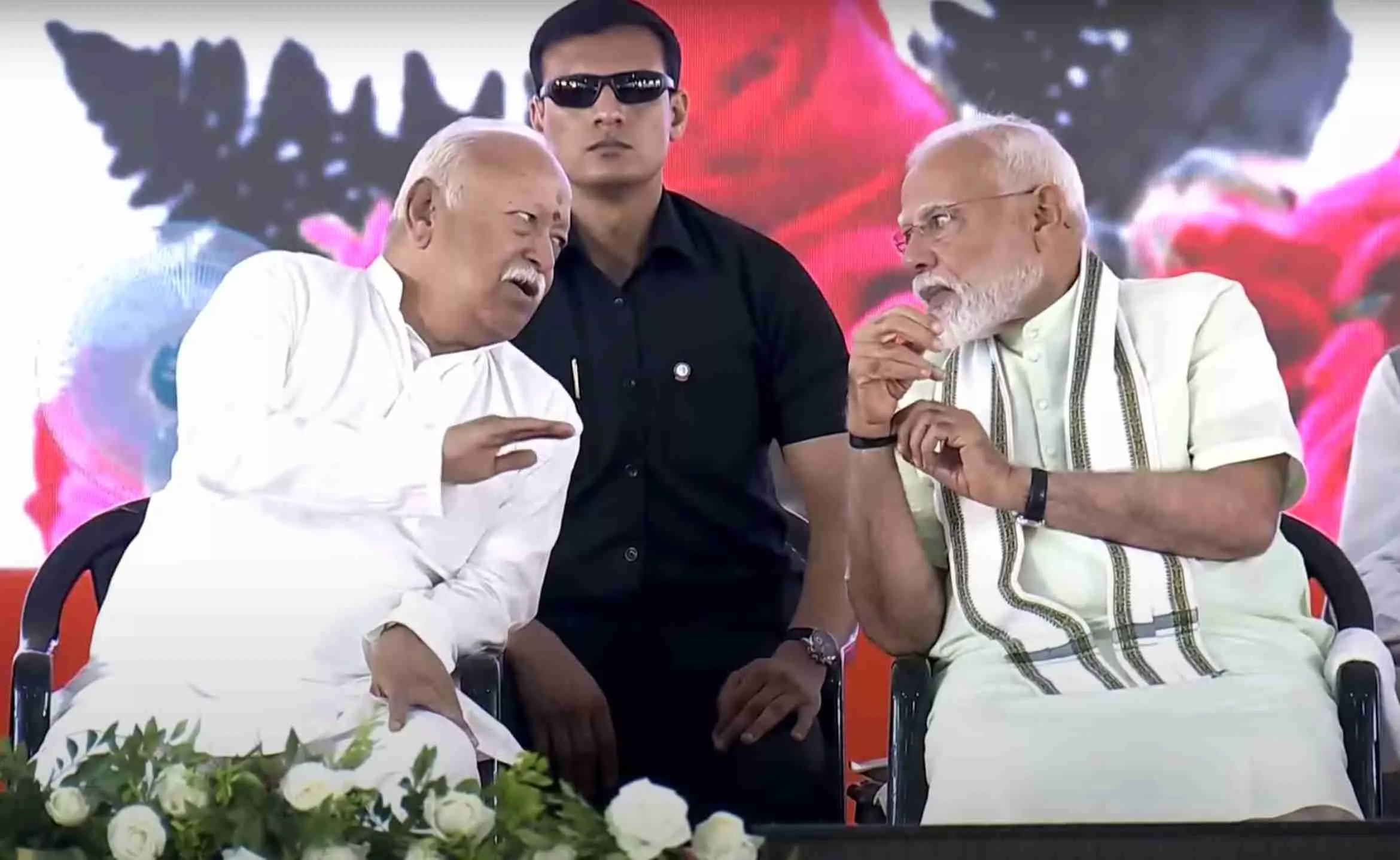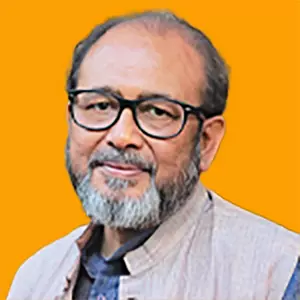
- Home
- India
- World
- Premium
- THE FEDERAL SPECIAL
- Analysis
- States
- Perspective
- Videos
- Sports
- Education
- Entertainment
- Elections
- Features
- Health
- Business
- Series
- In memoriam: Sheikh Mujibur Rahman
- Bishnoi's Men
- NEET TANGLE
- Economy Series
- Earth Day
- Kashmir’s Frozen Turbulence
- India@75
- The legend of Ramjanmabhoomi
- Liberalisation@30
- How to tame a dragon
- Celebrating biodiversity
- Farm Matters
- 50 days of solitude
- Bringing Migrants Home
- Budget 2020
- Jharkhand Votes
- The Federal Investigates
- The Federal Impact
- Vanishing Sand
- Gandhi @ 150
- Andhra Today
- Field report
- Operation Gulmarg
- Pandemic @1 Mn in India
- The Federal Year-End
- The Zero Year
- Science
- Brand studio
- Newsletter
- Elections 2024
- Events
- Home
- IndiaIndia
- World
- Analysis
- StatesStates
- PerspectivePerspective
- VideosVideos
- Sports
- Education
- Entertainment
- ElectionsElections
- Features
- Health
- BusinessBusiness
- Premium
- Loading...
Premium - Events

Despite Modi’s sway over masses, RSS's ‘discomfort’ with his continuance in office stems from his insistence for functional autonomy, for both PMO and BJP
In the not so veiled faceoff between the Rashtriya Swayamsevak Sangh (RSS) leadership, led by its sarsanghchalak, Mohan Bhagwat, and Prime Minister Narendra Modi, the latest salvo has been fired by the former, with his statement at a public function in Nagpur: “When you turn 75, it means you should stop now and make way for others.”
Also read: 'Hard for Modi to defy Bhagwat's age 75 retirement script; RSS leaders never speak off the cuff'
The comment has expectedly evoked sharp reaction because it not just contains a prompt to oneself, but also at his five decades-long ideological co-traveller, Prime Minister Modi.
What's behind remark?
By making this statement at a ‘parivar function’, at the release of a book on the one-time senior leader, Moropant Pingle, who did not ascend to the top position despite possessing all the credentials for the job, Bhagwat underscored that this was not an off-the-cuff remark. It instead has all the makings of a planned missive to induce intended reaction.
It is not written in stone that leaders of the RSS and its affiliates, including the Bharatiya Janata Party (BJP), must resign from organisational and public offices once they turn 75.
It thereby becomes essential to fathom the reason and purpose behind Bhagwat sharing what Pingle apparently stated: "If you are honoured with a shawl after turning 75, it means that you should stop now, you are old; step aside and let others come in.”
The moot question is, whether party leaders and those of other RSS affiliates, of any standing, after this nudge from Bhagwat, will line up on September 17 before Modi on the day when will turn 75, shawls in hand to pass on the message that Pingle mentioned.
It is not written in stone that leaders of the RSS and its affiliates, including the Bharatiya Janata Party (BJP), must resign from organisational and public offices once they turn 75.
But, in the Bhagwat era after he assumed office in 2009 and after Modi seized complete control of the BJP in 2014, this convention has gained greater currency. In the BJP however, this norm has been selectively used under Modi, mainly for the benefit of his loyalists.
Advani, Joshi ignored in 2014
For instance party veterans, LK Advani and Murli Manohar Joshi were left out of the Union Council of Ministers in 2014 because they were 75 plus. But, while former Gujarat Chief Minister Anandiben Patel put in her papers in August 2016, three months before touching the age bar, she was later appointed as Uttar Pradesh Governor as Modi required a loyalist to keep track of developments.
Also read: Another blunt talk by Mohan Bhagwat, but is he really walking the talk?
There were other instances too of the ‘rule’ being violated because of compulsions of realpolitik – BS Yediyurappa was 76 plus when he was made Karnataka Chief Minister in 2019 and he continued in office till well past 78.
It is possible that this unwritten norm is waived off for Modi and he remains in office at least till 2029, or maybe even beyond, health permitting. It can be argued that he remains the most popular leader, not just in the BJP, but also in the country, at least currently.
Furthermore, from the Sangh Parivar’s ideological perspective, he has been very successful in pursuing and fulfilling Hindutva objectives and goals.
Will Bhagwat step down?
However, this is where Bhagwat’s unambiguous statement could lead to awkwardness for Modi. It would be a safe bet to place at this juncture that the RSS chief has made up his mind to step down from office, at least at the conclusion of the RSS centenary year celebrations on Dussehra in 2026.
Although he can even name his successor and make way for the new incumbent on September 11 this year, when he turns 75, just six days before Modi, it is highly unlikely that this handover would be rushed through on the anvil of the start of anniversary celebrations, likely to be kicked off on October 2 when Dussehra is celebrated this year.
Also read: Why September 2025 could be make or break for Narendra Modi
Despite Modi’s popularity and his undeniable sway over masses, the RSS leadership’s ‘discomfort’ with the Prime Minister’s continuance in office stems from his insistence for functional autonomy from the RSS not just for his office, but also the BJP.
Modi’s failure to lead the BJP to its third parliamentary majority was chiefly due to this reason and was followed by several oblique critical statements of Bhagwat.
In the course of the Lok Sabha campaign in 2024, party president JP Nadda made several highly contentious assertions, the most pompous being that the BJP had no further “need” of the RSS, that it was now saksham or capable.
By no yardstick is Nadda a tall leader who dare says anything contrary to Modi’s reasoning. It can be safely presumed that this contention too was voiced at his leader’s prompt.
Nadda’s claims in the course of the media interview brought out the objections of the RSS which it always had with the personalised and centralised style of Modi’s functioning from the time he assumed the office of Gujarat Chief Minister in October 2001.
RSS's backing of Modi in 2014
From then onward, on several occasions it made efforts to demonstrate to Modi but in vain, that the RSS network was an essential support-arm for his continued electoral golden run.
Despite continued reservations, the RSS backed Modi in the run-up to the 2014 Lok Sabha polls, within the party and during the electoral campaign which was again undeniably personalised, for instance video campaigns with the tagline of Modi saying, “main desh nahi mitne doonga” (I would not all the nation to get obliterated).
Also read: Congress takes dig at PM Modi over Bhagwat's 75-yr remark: 'What kind of 'ghar-wapsi'
Although this was to the chagrin of the RSS, it chose to bear with his ways for it sensed a chance for the fraternity to gain control of government, after a decade out of power.
Critical numbers
Modi learnt early that he had the numbers to not just fulfil the Sangh Parivar’s ideological goals, but also appoint innumerable functionaries of various RSS affiliates to official bodies in every conceivable sector. This has been an additional reason, besides the Union government’s policy decisions, for the Indian State to unabashedly display its Hindu majoritarian character.
Modi also shrewdly arranged for material comfort to be showered on the organisation and its leaders. From the lower middle class visage of yore, the two climbed up the ladder of luxury – the new office of the RSS in Delhi being a prime example.
With the turn of events since 2014, there was unanimity among political observers that the RSS has yielded space to the ‘Modified’ BJP. Eventually after the string of vyakti-kendrit (individual-centric) slogans of the BJP for the 2024 Lok Sabha campaign, the RSS chose to stay away to a great extent from the electoral process.
The choice of the next BJP chief will cast its shadow on Bhagwat’s prompt that leaders must bow out of office after 75.
Modi’s failure to lead the BJP to its third parliamentary majority was chiefly due to this reason and was followed by several oblique critical statements of Bhagwat. After months of estrangement, a patch-up of sorts was arranged from the last quarter of 2024.
Assembly elections were also held in succession after this in the states of Haryana, Maharashtra and Delhi, the three states where the RSS joined the campaign with its past enthusiasm and the verdicts demonstrated its electoral capacity.
That the two entities, part of the saffron brotherhood, had made up became evident when Modi visited Nagpur, went to the RSS building which houses the memorial for its founder, Keshav Baliram Hedgewar, had an one-on-one meeting with Bhagwat and addressed a public meeting alongside him.
Choosing next BJP president
Yet, divergences over their ways remained and this was palpable in the still unresolved matter of the next BJP president. As of now, it is anyone’s guess when the party will name Nadda’s successor.
It is also not known whether it would be a consensual choice with both Modi and RSS agreeing on the choice, or if Modi will have his way again, as in 2014 and 2019.
The choice of the next BJP chief will cast its shadow on Bhagwat’s prompt that leaders must bow out of office after 75. If the presidential choice is an undisputed Modi’s ‘choice’, then it is likely that the RSS chief will be the only one to step aside by Dussehra 2026.
Roller coaster ride
For almost 15 months tracking developments within the Sangh Parivar has been like following a roller coaster ride, with ups and downs constantly altering between the two camps. The only certainty that can be deduced from Bhagwat’s statement is that little can be foreseen comprehensively.
Besides of course, that the RSS chief has decided to doff his hat and walk away from the spotlight. And that, would certainly lead to pressure on Modi to follow suit. But then, politics is all about the unforeseen.
(The Federal seeks to present views and opinions from all sides of the spectrum. The information, ideas or opinions in the articles are of the author and do not necessarily reflect the views of The Federal.)


